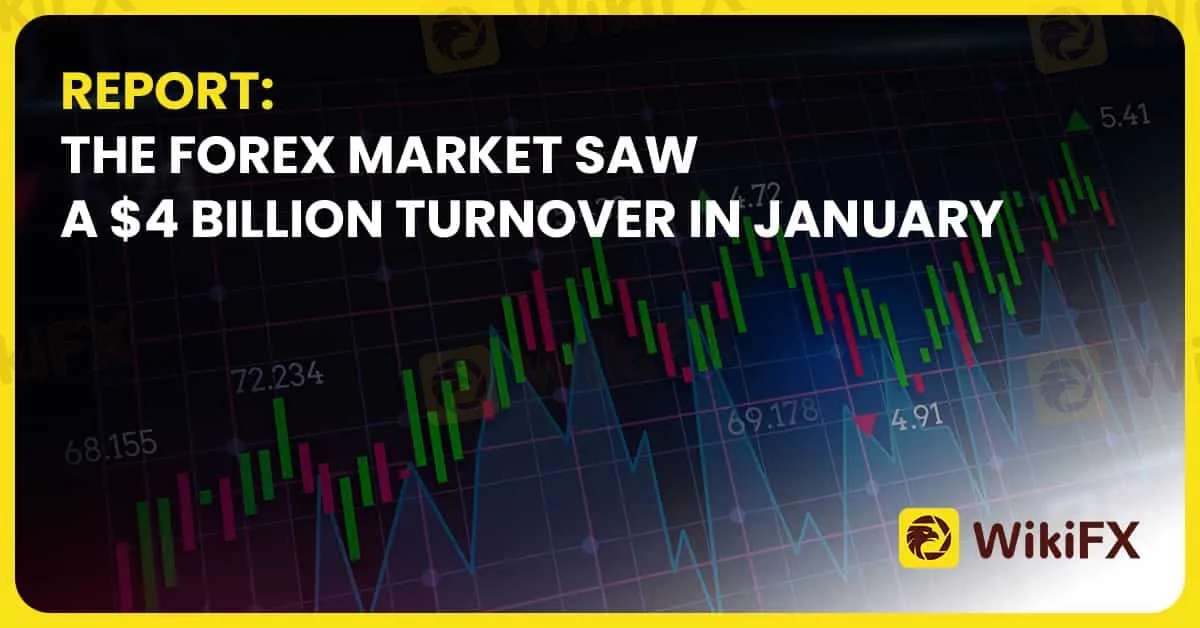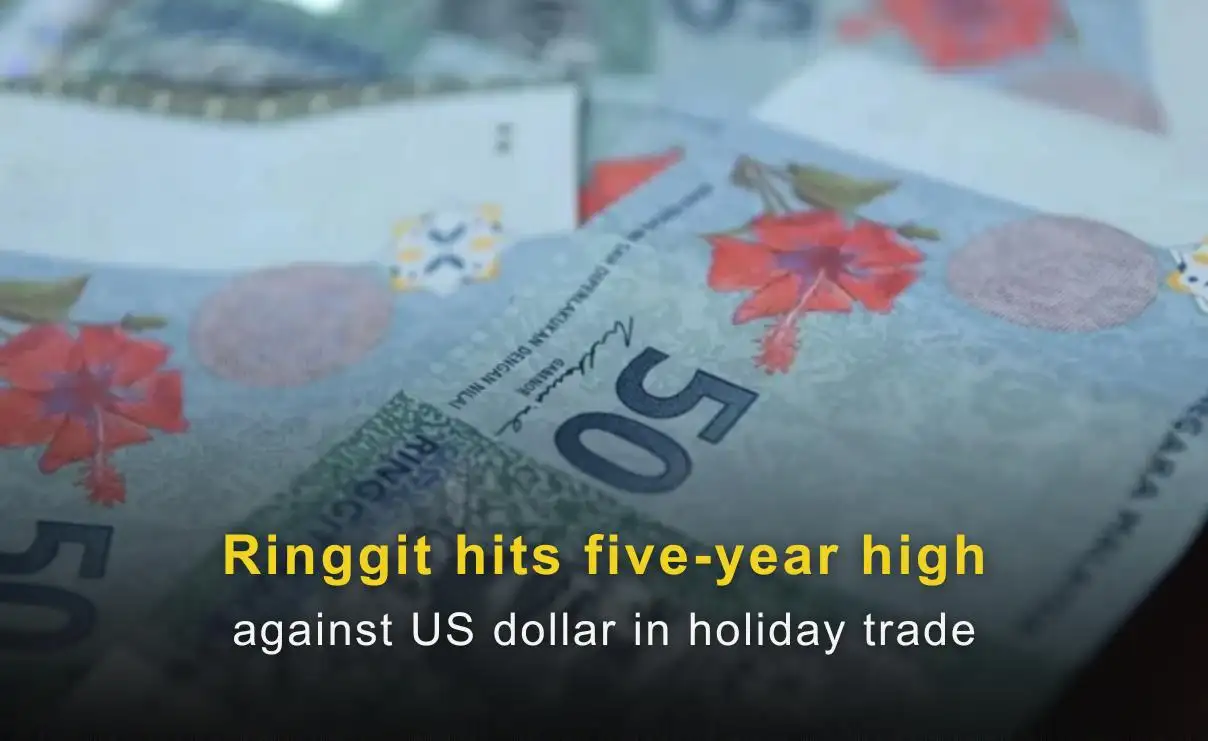Ringgit hits five-year high against US dollar in holiday trade
The Malaysian ringgit extended its rally, reaching a five-year high against the US dollar, trading in a narrow range of RM4.04-RM4.05.
简体中文
繁體中文
English
Pусский
日本語
ภาษาไทย
Tiếng Việt
Bahasa Indonesia
Español
हिन्दी
Filippiiniläinen
Français
Deutsch
Português
Türkçe
한국어
العربية
Abstract:The FX market is an international, decentralized, over-the-counter platform where currencies can be traded. The FX rates for each currency are set by this market. It covers purchasing, selling, and converting currencies at established or current rates.

The FX market is an international, decentralized, over-the-counter platform where currencies can be traded. The FX rates for each currency are set by this market. It covers purchasing, selling, and converting currencies at established or current rates.
The bigger international banks are in this industry. With the exception of weekends, financial hubs all over the world are for trading between a variety of different types of buyers and sellers. Because currencies are usually traded in pairs, the market price of one currency established when paid for with another establishes a currency's relative worth rather than its absolute value.
The Nigerian Autonomous Foreign Exchange Market, the official FX market, saw a 40.46 percent decline in turnover from $7.34 billion in December 2023 to $4.37 billion (N4.03 trillion) in January.
The US dollar strengthened versus the naira, with the spot exchange rate rising by 10.44 percent ($/N93.66) to close at an average of $/N990.96 in January 2024 from $/N897.30 to the most recent Financial Markets Monthly Report published by FMDQ, which houses the NAFEM.
According to the research, there was a rise in January 2024. This was because the naira traded between $/N838.95 and $/N1,482.57, which was higher than $/N806.73 and $/N1,099.05 in December 2023.
It says that, compared to December 2023 (N16.31tn), the market turnover in January 2024 was N7.19tn, a month-over-month reduction of 55.92 percent (N9.12tn).
According to FMDQ, the decrease in turnover across Treasury Bills, OMO Bills, CBN Special Bills, FGN Bonds, and Other Bonds was responsible for 62.31 percent (N3.24tn), 2.54 percent (N0.06tn), 79.50 percent (N3.49tn), 53.27 percent (N2.28tn), and 59.45 percent (N0.05tn) of the MoM decline in the FI market.
T.bills and FGN Bonds within the >6M – 12M and >20Y tenors, respectively, were the most traded sovereign FI securities, accounting for 35.86 percent (N1.42tn) and 26.52 percent (N1.05tn) of turnover for sovereign FI securities in the spot market, the report stated. “As a result, the trading intensity for T.Bills and FGN Bonds decreased MoM by 0.56bps and 0.11bps to 0.30 and 0.10, respectively.”
The study states that in January 2024, the money overall turnover dropped by 21.45% (or N1.54 trillion) to N5.64 trillion.
In January 2024, the FX derivatives saw a total turnover of $4.56 billion (N4.21 trillion), a MoM fall of 29.52 percent ($1.91 billion) from the December 2023 statistics.
According to the Exchange, the declines in FX derivatives turnover on a month-over-month basis were caused by declines in FX Swaps, FX Forwards, and FX Futures transactions of 27.67% ($1.71bn), 62.50 percent ($0.15bn), and 100.00 percent ($0.05bn), respectively.
The naira slightly weakened against the dollar on Wednesday, closing at N1,605.74 on the official market, down from N1,602 the day before.
Tuesday's loss is the second day in a row that the currency has declined versus the US dollar, suggesting still insufficient and that demand pressures in the FX market are still present.
This decrease occurs in tandem with Binance, a cryptocurrency trading platform, announcing that it will no longer be trading Nigerian Naira.
The Naira fluctuation, the currency of Nigeria, was caused by Binance, causing a wild slide in value. In addition, the business is accused of, tax evasion, money laundering, down to 43% in 2024 at more over N1,600/$1, and it continues to be one of the worst in Sub-Saharan Africa. This is true even though the apex bank implemented a number of policy changes to address the FX crisis.

Disclaimer:
The views in this article only represent the author's personal views, and do not constitute investment advice on this platform. This platform does not guarantee the accuracy, completeness and timeliness of the information in the article, and will not be liable for any loss caused by the use of or reliance on the information in the article.

The Malaysian ringgit extended its rally, reaching a five-year high against the US dollar, trading in a narrow range of RM4.04-RM4.05.

When evaluating financial service providers, trust, regulation, and transparency are key. In this review, we examine Pictet — a well-known Swiss financial institution — and assess whether it is legitimate or a scam, highlight its core services, and compare it with other brokers in the market.

Gold reached its latest record high during quiet trade on Monday. The question for traders now is whether it can sustain momentum into the year end with depleting volumes.

WikiFX Golden Insight Award uniting industry forces to build a safe and healthy forex ecosystem, driving industry innovation and sustainable development, launches a new feature series — “Voices of the Golden Insight Awards Jury.” Through in-depth conversations with distinguished judges, this series explores the evolving landscape of the forex industry and the shared mission to promote innovation, ethics, and sustainability.
